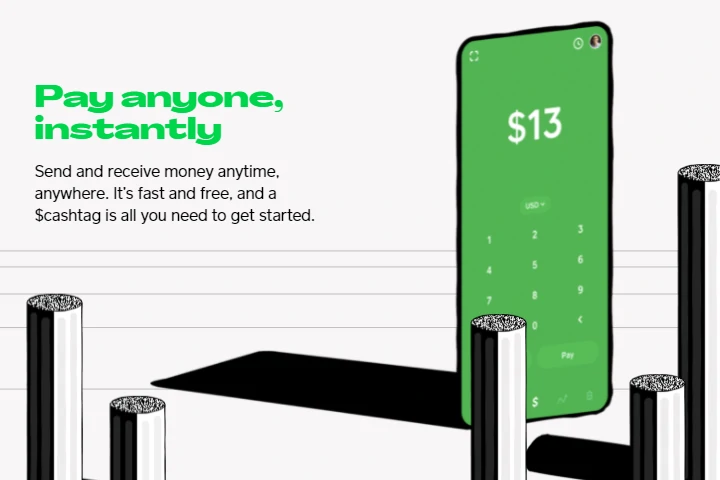Can You Get Scammed on Cash App Sugar Daddy? [Warning]
We’ve seen a number of these types of Cash App schemes pop up over the past few months, but one seems particularly prevalent at the moment: The “sugar daddy” scam. Some of your friends and family may be on the receiving end of a sugar daddy scam, and I have to say, it’s not fun.
It can leave people out of pocket and miserable in a financial crisis.
Read on to discover what a sugar daddy scam is and how it works, as well as what you can do to keep yourself safe.
What Is a Sugar Daddy?

A “sugar daddy” is a rich older person, typically a man(can be a woman too!), who provides money for companionship. Sugar daddies and mummies are frequently found meeting young people in need of cash, known as sugar babies.
Sugar babies give their daddies and moms love and attention in return for money, expensive gifts, or other financial incentives.
When done with good intentions, the connection between them is beneficial for both parties, and no frauds or abuse are technically taking place. However, scammers are now using this method to steal money by finding innovative ways.
Sugar Daddy Cash App Scams
The sugar daddy fraud is carried out using a number of different attack vectors, but they all follow the same basic procedure and outcome.
The scammer tells the target that they have or will soon obtain a large sum of money. It generally entails sending phony cash to the victim’s Cash App or bank account. The sugar baby receives a text from the phony sugar daddy demanding money back.
Alternatively, The Sugar Baby is instructed to send a gift card to her “sugar daddy” to receive appreciation. The fake sugar daddy disappears once they’ve been paid, taking the cash they just stole.
The con artist will block you and disappear along with your Cash App account funds. The victim will lose money by the time the scam is discovered, and the cardholder will chargeback, leaving the victim out of pocket.
How does Cash App Sugar Daddy Scam work?

The con artist will generally take one of two methods to extort money from the sugar baby.
The first is when they promise a large sum of money but want you to pay upfront.
In the second scenario, the scammer usually pays the sugar baby a large amount of money that vanishes after a time, but not before the scammers ask for some back.
The scammer may ask for an upfront payment first
The most straightforward approach to detect is this one. That’s because it employs the same money-related scams that we’ve seen in previous services, such as Venmo-related frauds.
The con artist begins by pretending to be a sugar daddy or mommy. They then contact individuals who are seeking to become the sugar baby on different social media and websites.
The con artist will message the target, informing them that they are willing to pay off any outstanding bills or provide them with expensive goods. The scammer uses various methods to persuade the target that they are the only one who can save them from their problems.
Then the scammer claims that he or she is prepared to assist the victim in getting out of their difficulty, but there’s a catch.
However, he/she will want payment from the sugar baby before sending the money. The reason can change from scammer to scammer. They will claim that the small payment is a “proof of loyalty.” Others will claim that the victim must pay transaction fees or other costs associated with sending the funds.
Of course, the first payment isn’t for anything: it’s simply a scam.. Scammers will disappear after receiving their funds, leaving the victim out of pocket.
When the Scammer Makes a Small Deposit First

This approach is much more dangerous than before, since it is highly probable that the user will believe they were paid. It is also known as the sugar daddy check scam. The issue is that the money paid to the victim fades away after a while, leaving them with nothing once again.
They might generate this “temporary payment” in one of two ways. Scammers may use stolen credit card money to pay the sugar baby. The thief may pay cash into your account, but when the credit card company discovers that the card has been stolen, they’ll take back the money sent.
They may also opt to cash a check that will bounce. When you send money, it will appear in your bank account. However, they will not “count” until the funds have cleared. The funds will be removed from the account again if they don’t.
But, how are they reaping financial benefit from their victim if they’re paying them with this short-term cash?
They take advantage of the period between the payment and money clearing from the bank. When the victim is certain they have been paid, they can take advantage of this opportunity to ask for some money back before the funds are gone.
For example, to cover the victim’s bills, the scammer may send the victim checks for $3,000. The con artist will then claim that they need a token of appreciation or some sort of event approach. After that, they’ll ask the victim to repay them a little amount (for example, $200), generally in gift cards.
Gift card payments are an indication that you’re dealing with fraud. Gift cards, unlike money transfers, have less paper trail and are easier to send. This is why online scammers frequently request payment via gift cards.
They believe they still have the money the fraudster sent over as a backup, so the victim sent it. Unfortunately, the checks will bounce, leaving the victim with $100 less than they had at the beginning.
Sugar Daddy Scams: How to Spot Them
The issue isn’t with the sugar daddies themselves; it’s with the poor choices made by desperate people. While it is uncommon, some genuine individuals provide money in exchange for spending time with them.
As a result, weeding out those who don’t want to support you is more important. The scammers are the ones who take advantage of the system.
Here are some safety precautions of these Sugar Daddy Cash App scams:
- Be wary if a sugar daddy or mommy asks you to pay them upfront. Payments to “prove your loyalty” or cover transaction charges are a typical example of this. It is not your responsibility to pay them back if someone gives you money. Also, keep in mind that Cash App does not charge a clearance fee of any kind.
- Please don’t act on or spend any money that someone sends you unless you’re entirely sure it’s genuine. Wait it out, allow the required time for bank clearance.
- If they paid money straight into your account via credit card, don’t spend it for a few days to ensure it hasn’t been stolen.
When people are genuine, sugar daddies and moms can assist them financially and develop relationships. However, frauds attempt to take advantage of the system, so be on the lookout for phony parental figures.
